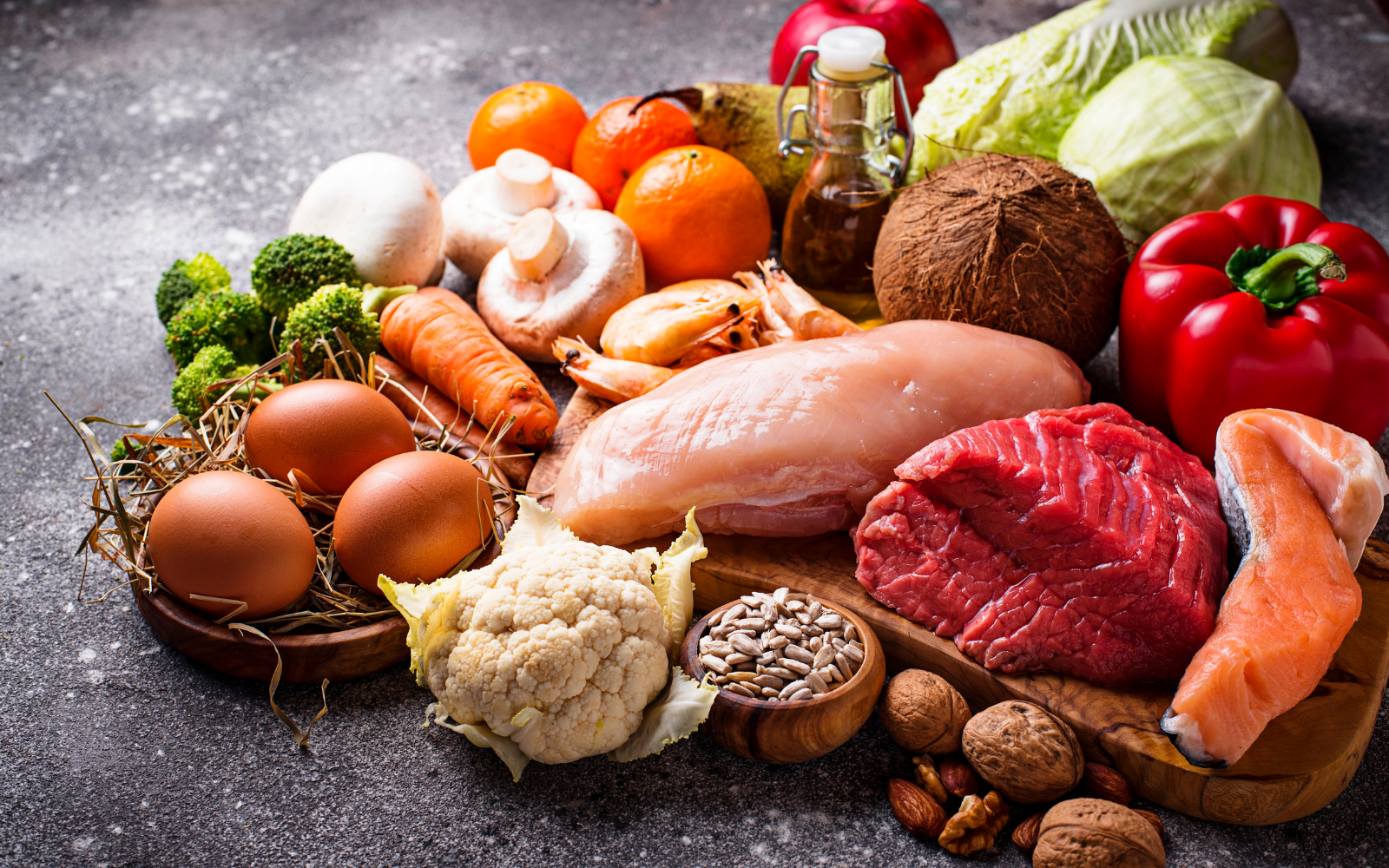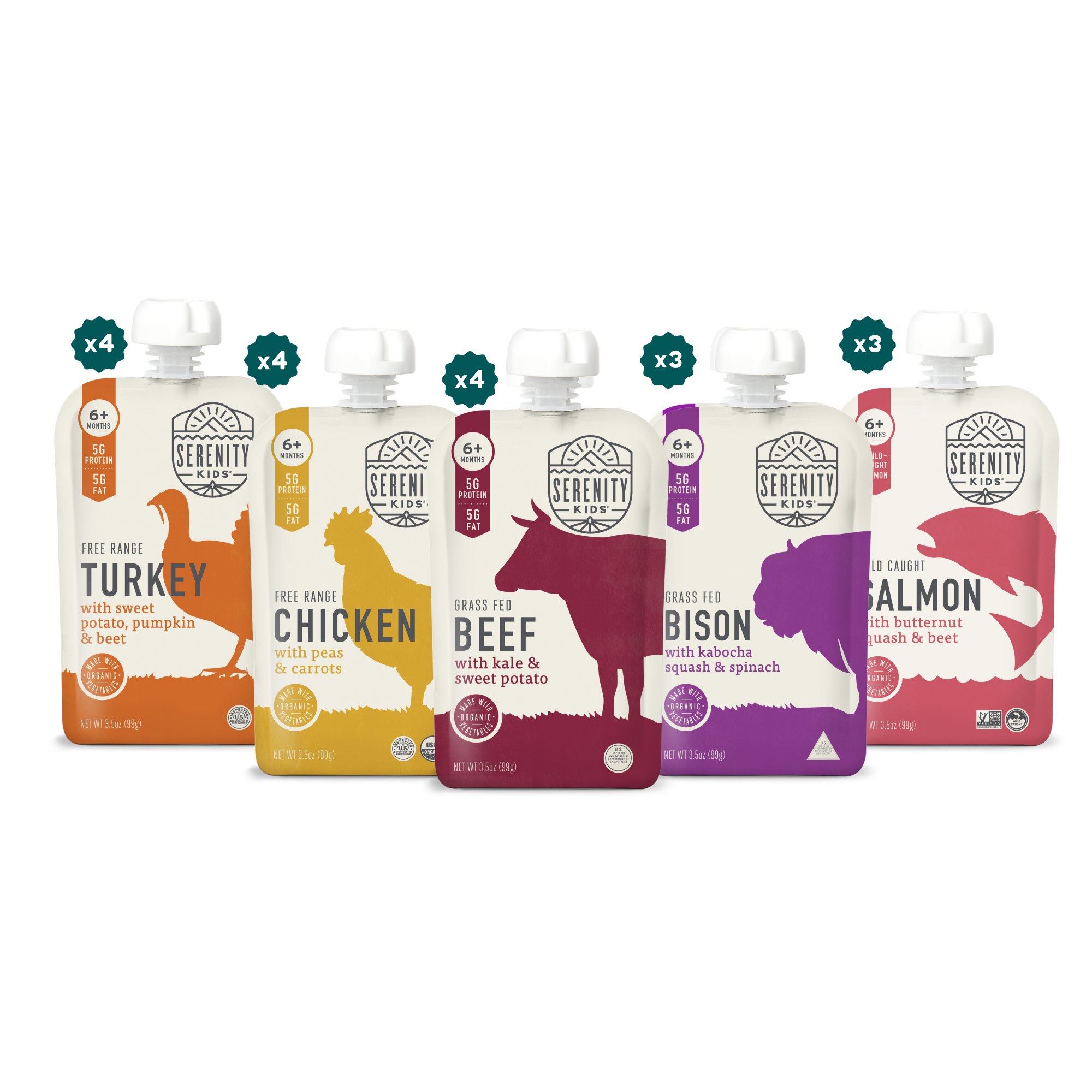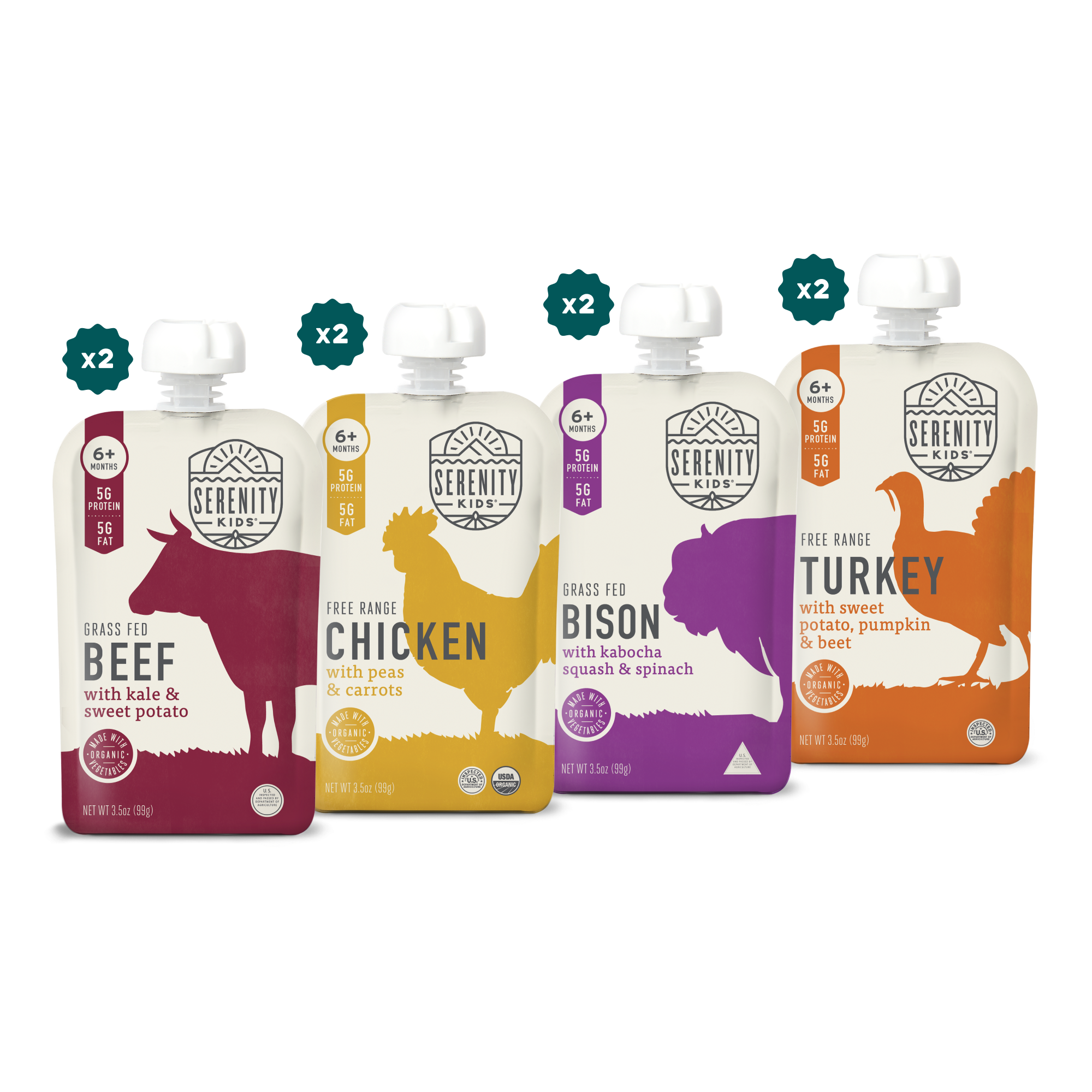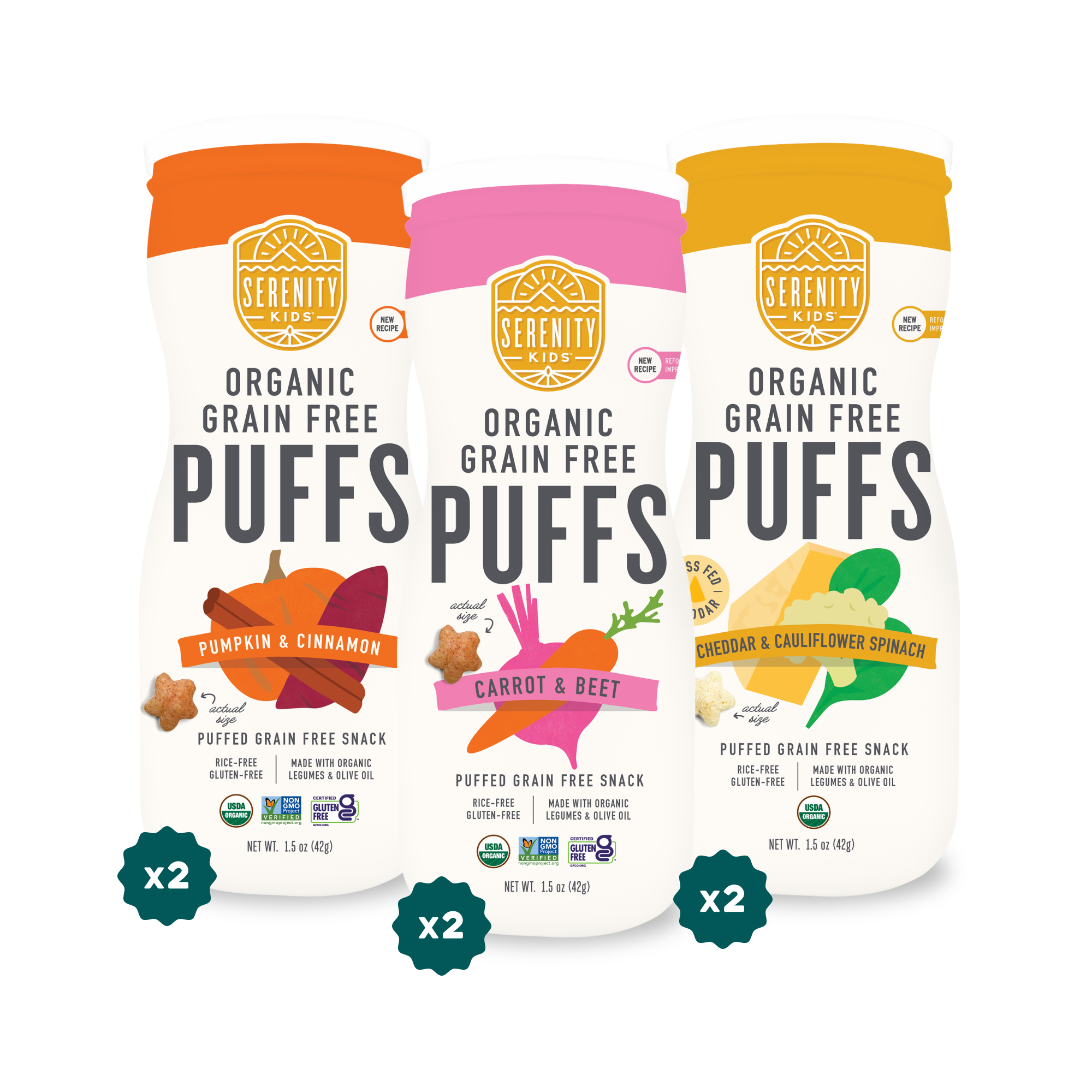TABLE OF CONTENTS
Written by Shelley Cameron
April 08, 2022
No Grains, No Problem! Here's Why We Believe in a Grain-Free Lifestyle

Nutrition can be overwhelming. With so many different opinions and perspectives it can be hard to know what’s healthy and what’s not. And when it comes to introducing foods to your little ones, the overwhelm can turn into stress. After all, we all just want what’s best for our babes. And the pressure to not screw it up is real.
So rather than tell you what to do, we’re sharing a bit more on why we do what we do - why we follow a grain-free diet. These reasons, combined with the way grain-free eating makes us feel (healthy and full of energy!) make the choice to go grain-free a no-brainer for our family. That said, eating habits are a completely personal choice, so we aren’t here to preach - you do you!
So here’s what we don’t love about grains that has led us to avoid them:
They lack nutrients
The bottom line is that grains just don’t contain much nutrition. And in fact, there are no nutrients in grains that you can’t get in other (more nutrient-dense) foods. And since little ones have limited belly space, why fill it up with stuff that doesn’t give them the nutrients they need? When every bite counts, filling our kids plates and bellies with nutrient-dense foods like clean meats and veggies will give them a bigger bang for their nutritional buck than grains.
They irritate the gut
Grains (especially wheat) contain lectins. Lectins are a type of protein that bind to carbohydrates. In nature, lectins are used by plants as a defense mechanism. But these defense mechanisms can also create problems during human digestion. Lectins resist being broken down in the gut, and in fact, research has found eating large amounts of lectins may cause inflammation and irritate the gut wall. This can lead to a number of digestive issues, including leaky gut.
They are often refined and processed
Most grains that are available in your grocery store are processed and refined. Yes, even the bread bag that boasts 20+ grams of whole grains likely contains refined grains in addition to whole grains. Many of these processed grain products also have added sugar (yes, even plain bread). These types of foods enter the bloodstream quickly, causing a sharp spike in blood sugar. The spike is followed by an equally large crash, which can lead to a whole lot of unpleasant side effects - from toddler hanger and tantrums to trouble focusing and disrupted sleep.
They may impair absorption of nutrients
Grains contain antinutrients, like phytic acid and lectins that can reduce the body’s ability to absorb essential nutrients. This means that they can cause important nutrients to be lost. Research shows that antinutrients like phytic acid bind to minerals like iron, zinc, and calcium and keeps them from being absorbed by the gut. These nutrients are critical to proper growth and development, so possibly blocking their absorption isn’t a risk we want to take.
They Commonly Contain Heavy Metals and Pesticides
Heavy metals are considered neurotoxins, essentially a poison which damages your nervous system. They can affect everything from memory and cognition to mood and energy. They aren’t entirely unavoidable in our food system (metals exist in soil), but they can be limited by avoiding certain foods known to have particularly high levels.
Arsenic and other heavy metals are especially high in rice crops. These substances are known to be associated with an increased risk of bladder and lung cancers. In fact, according to a study by the FDA in 2016, completely eliminating rice from a child’s diet before 12 months might reduce their risk of these cancers by 6%.
In addition, most nonorganic grains are sprayed heavily with pesticides containing the chemical glyphosate. It’s a controversial topic, but there is enough evidence against glyphosate that we choose to avoid it.
But don’t babies and kids need carbs?
Yes, they do! But those carbs don’t need to come from grains. Vegetables are a great source of healthy carbohydrates, and they come conveniently packaged with fiber and other vitamins, minerals, and antioxidants.
Other great alternatives to grains that can be used in cooking and baking include cassava flour (found in our grain-free puffs!), tapioca flour (also from the cassava root), almond flour, coconut flour, and tigernut flour.
Some favorite grain-free recipes
If you want to give grain-free a go, check out some of our favorite recipes:
- Beef + Ginger Patties
- 15-Minute Nutrient-Dense Pasta 🍝
- Beef & Broccoli Pasta
- Salmon Patties
- Pumpkin & Squash Mini Muffins
No grains, no problem
Bottom line: we find that a grain-free way of eating makes us feel good, and with so many delicious and nutritious alternatives, we just don’t miss grains in our lives. Whether you avoid grains entirely or not, we hope our lineup of grain-free snacks for kids are a hit in your household too!
Shop now!
You Might Also Like
· 1 min read · Recipes
· 7 min read · Education














































